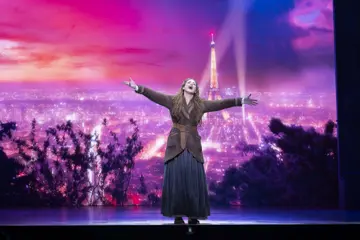Filmmaker Rolf de Heer knows a thing or two about extreme responses to his work. When his second feature, the trippy science-fiction drama Incident At Raven's Gate was released in the UK in 1988, he was sent a bundle of reviews, the first of which began with the sentence "Australians make some very bad film and this is one of the worst."
"It was like a kick in the guts," laughs de Heer. "They proceeded to justify that, and I was going 'They're right, they're right!' Gradually they got better, and the last one I read finished with 'This film is a work of genius.' They're both about the same film; not one frame of the film is different. So it's not about the film, it's about the people who watch it. So I begin with the notion that I'm going to get a complete range of responses."
"Any expectations people have are confounded because the film practically makes up its own mind what to do with you."
In a career that spans nearly three decades, de Heer has indeed received that complete range of responses, although they tend to veer towards the positive. But it's safe to say that no film in his body of work has divided viewers — in terms of emotional and psychological response as well as critical reaction — as much as 1993's Bad Boy Bubby. It's the story of a man in his 30s (unforgettably played by Nicholas Hope) who, after spending his entire life imprisoned in one room by his unbalanced mother, makes his way into the outside world and embarks on a bizarre journey of self-discovery.
Bad Boy Bubby is screening at the Brisbane Asia Pacific Film Festival on 25 November, and de Heer is anticipating that the film will once again provoke and divide audiences. It's a real Rorschach test of a movie, something the filmmaker discovered when it premiered at the Venice Film Festival back in the '90s.
Don't miss a beat with our FREE daily newsletter
"Venice was the first time I ran across audiences who'd seen it, and I realised something was afoot," he says. "The reaction to it was so personal, and I know any person's response to a film is so much a function of who they are. But with this it was more so, whether people liked it, hated it or could even cope with it at all. I got the feeling this was hitting a different kind of chord."
It's even become something of a therapeutic tool, de Heer notes with amusement. "I got an email this morning from France, where the film is opening today in 23 cinemas, and they're having a number of Q&As with psychoanalysts and psychiatrists," he says. "It comes from the story of when it ran in Norway, where it had a tremendously long run when it was first released. It was the second highest grossing film of the year in Norway, beating all manner of American blockbusters. Apparently there was a psychiatrist who, every Friday afternoon, would load up a minivan with six of his clients — they'd see the film and then have a therapy session afterwards. This went on for months!"
The range of reactions Bad Boy Bubby continues to inspire is something that seems to please de Heer: "That's one thing I've learned about the film: any expectations people have are confounded because the film practically makes up its own mind what to do with you."















